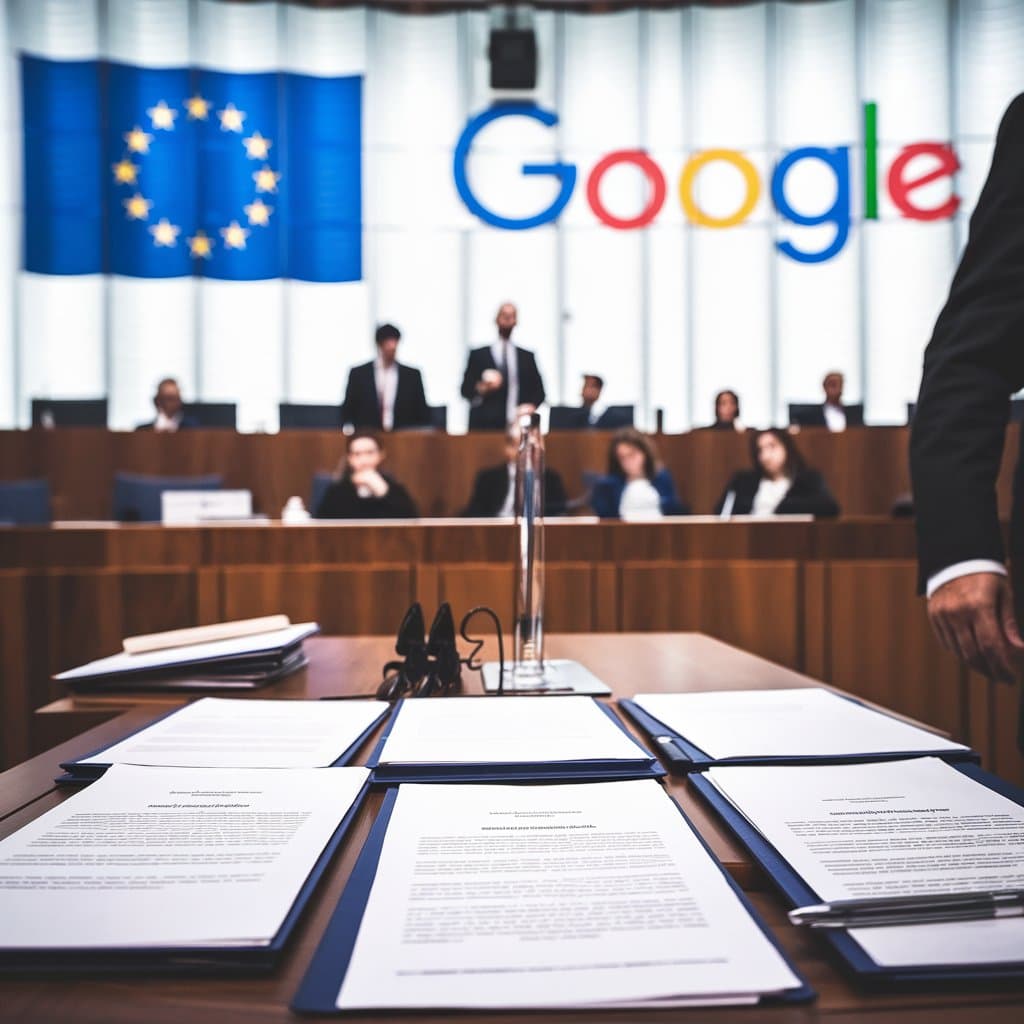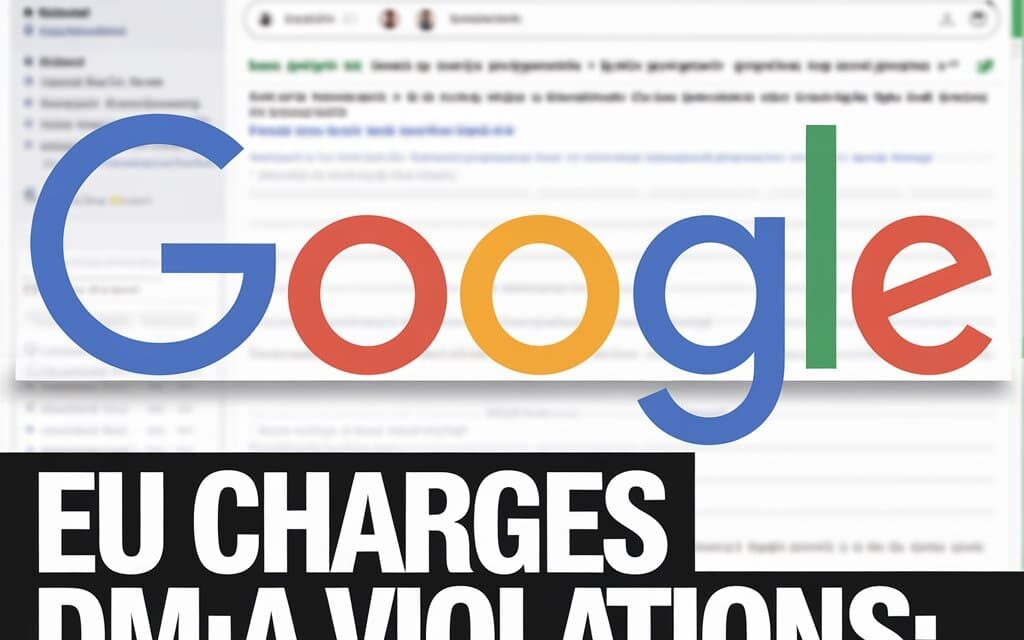The European Union has officially charged Google DMA with violating the Digital Markets Act (DMA), marking a major development in the ongoing battle between regulators and big tech. These accusations could reshape how Google operates in the EU and beyond. Let’s break down what’s happening, how it affects users and marketers, and what comes next.
Table of Contents
- What’s Happening With Google Search?
- Google Play Also Under Fire
- What This Means For Digital Marketers
- Google Pushes Back
- The Bigger Picture
- Final Thoughts
What’s Happening With Google Search?

Google’s search practices are at the center of the EU’s concerns. Regulators claim that Google unfairly favors its own services in search results, limiting visibility for competitors. Under the DMA, designated “gatekeepers” (large tech firms with dominant market positions) must ensure fair competition, and the EU believes Google has fallen short.
If found guilty, Google could face hefty fines up to 10% of its global revenue, potentially billions of dollars. The impact could lead to significant changes in how search results are displayed within the EU, giving smaller competitors a better chance to rank organically.
Google Play Also Under Fire
The EU isn’t just targeting Google Search. Google Play Store policies are also under scrutiny, particularly regarding in-app payments and developer restrictions. Officials argue that Google’s dominance forces app developers to comply with unfair terms, limiting their ability to offer alternative payment options.
This mirrors similar legal battles Google has faced worldwide, including in the United States, India, and South Korea, where regulators are pushing for more open app ecosystems. If the EU ruling forces changes, we may see lower fees for developers and more payment choices for consumers.
What This Means For Digital Marketers
For digital marketers, a more regulated Google ecosystem could mean both opportunities and challenges:
- More competition in search results: If Google is required to display more diverse content, smaller brands may have a better shot at ranking against industry giants.
- Potential changes in advertising costs: If organic search results become fairer, some businesses may rely less on paid ads, possibly driving Google Ads costs down.
- New app store policies: Developers might gain more flexibility in monetization, potentially increasing competition in the app marketplace.
Adapting to these changes early will be crucial for businesses and SEO professionals.
Google Pushes Back
As expected, Google is defending itself against the EU’s claims, arguing that its services benefit both users and businesses. The company insists that its algorithms are designed to deliver the most relevant results, not to stifle competition.
Google also claims that changes imposed by the EU could degrade user experience and weaken security measures, particularly in the app store environment. The tech giant is expected to appeal any ruling that could significantly alter its business model.
The Bigger Picture
This case is part of a larger global effort to regulate Big Tech and ensure fair competition. The EU has led the charge with strict laws like GDPR and DMA, setting a precedent for other regions. If successful, this case could encourage more governments worldwide to introduce similar regulations.
For businesses, developers, and marketers, staying informed about these changes is crucial. The digital landscape is evolving, and adapting quickly will be key to maintaining a competitive edge.
Final Thoughts
The EU vs. Google battle is far from over, but its outcome will have lasting effects on search, digital advertising, and app ecosystems. Whether you’re a marketer, business owner, or developer, these changes could reshape how you interact with Google’s platforms. Stay tuned for updates as the case unfolds!






